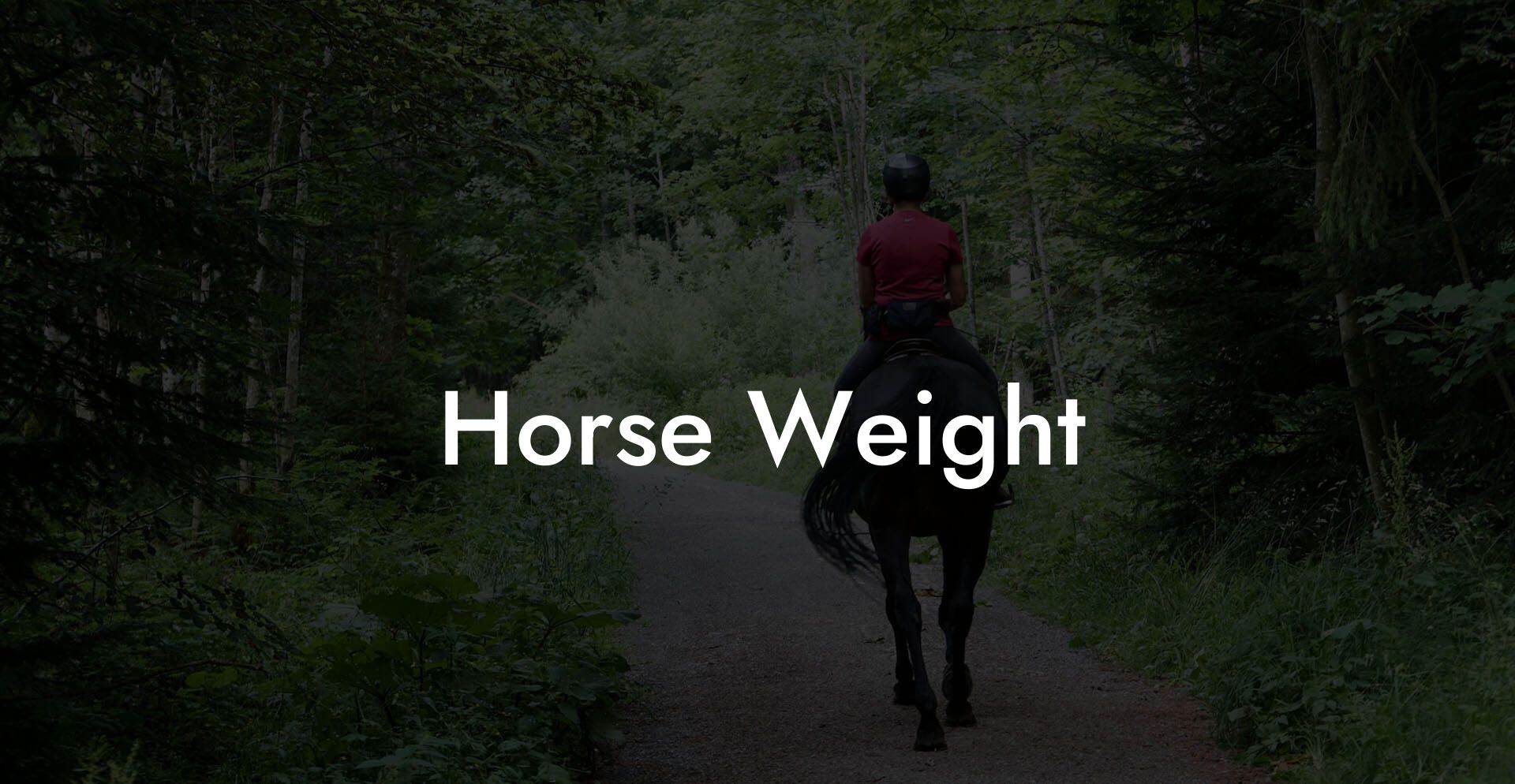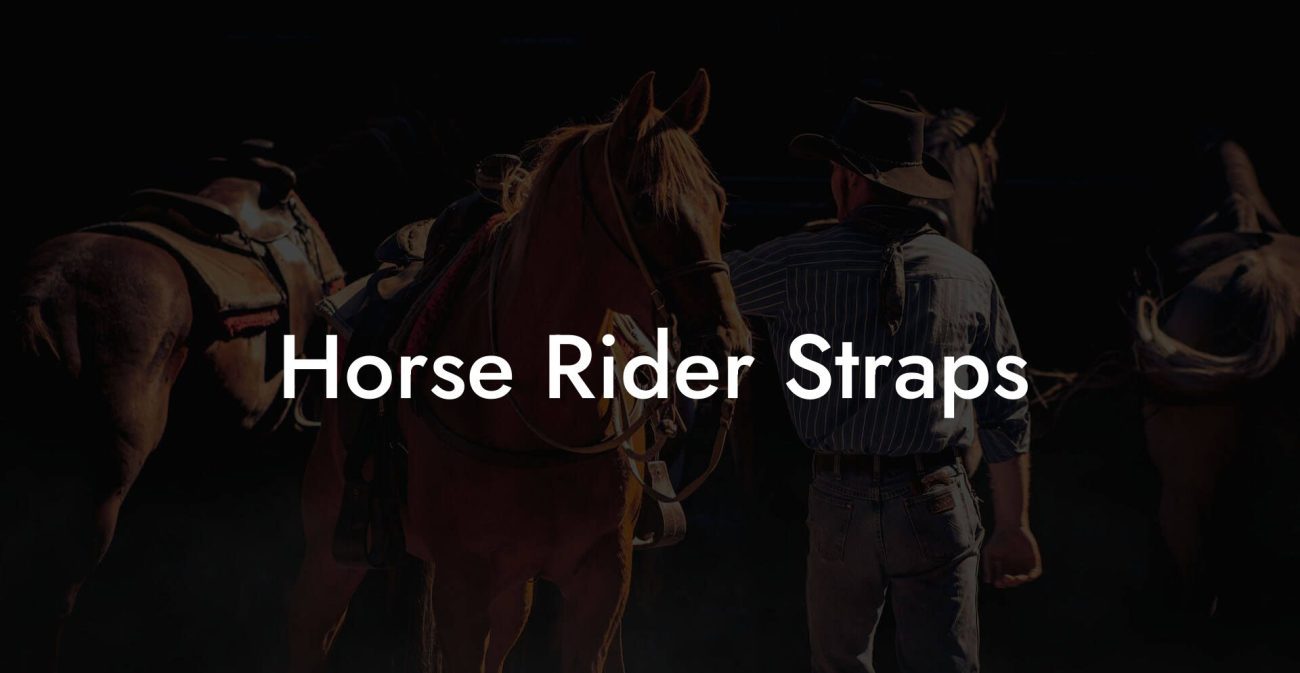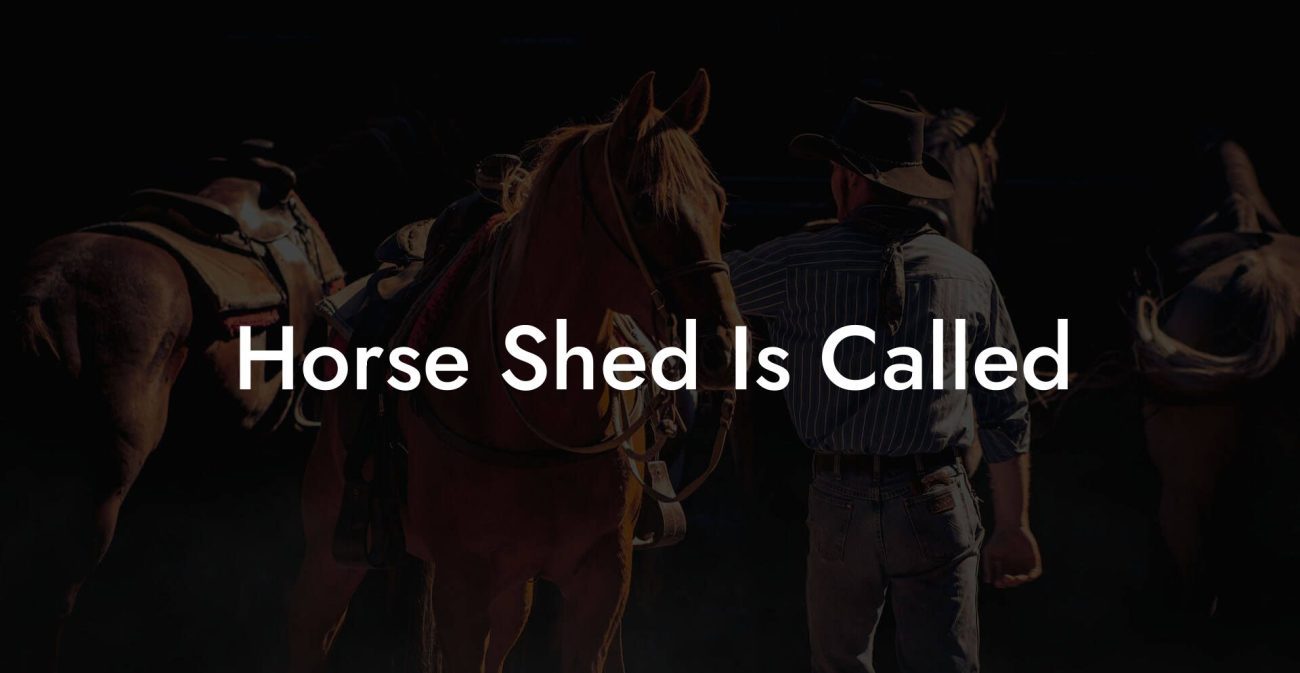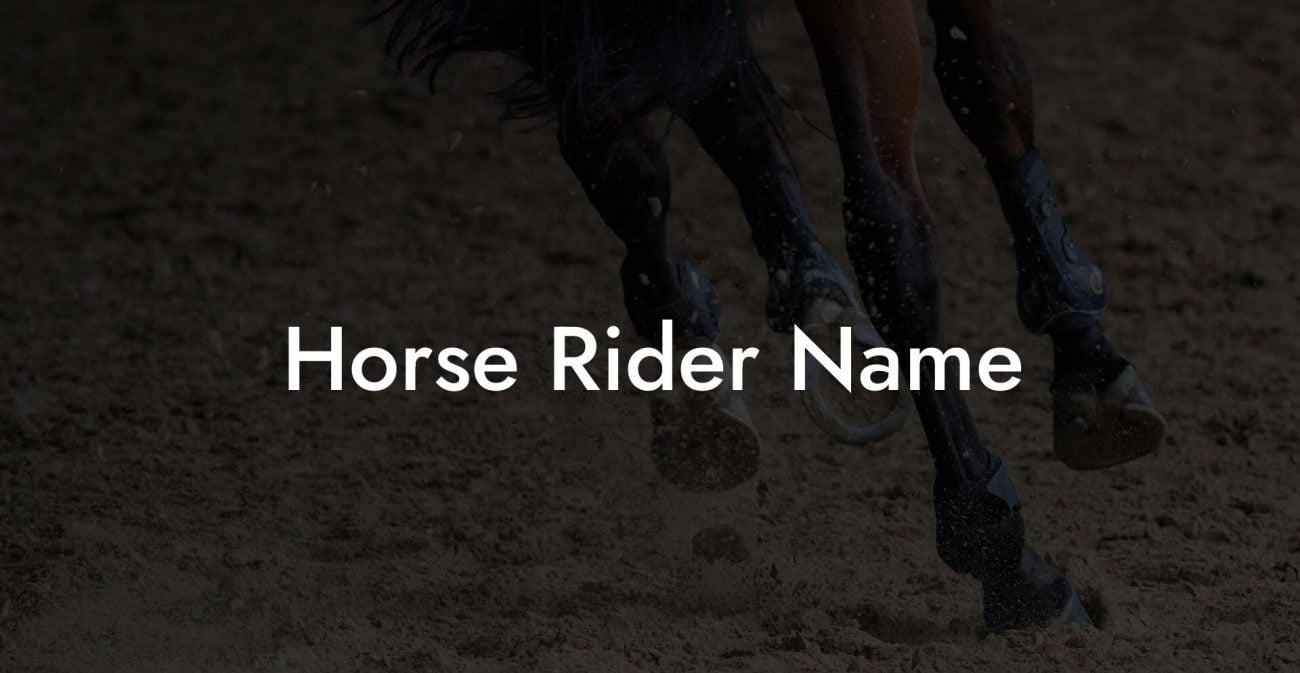Whether you're a seasoned equestrian or a first-time horse owner, keeping a close eye on your horse's weight is essential for ensuring a long, healthy, and happy life for your four-legged friend. In today’s fast-paced world, where Gen-Z and millennial lifestyles meet the rustic charm of equine care, understanding horse weight is more than just checking numbers on a scale, it's about embracing a holistic, fun, and science-backed approach to your horse’s overall well-being.
Quick Links to Useful Sections
- Understanding Horse Weight: Why It Matters
- Assessing Your Horse’s Weight: Methods and Tools
- Horse Nutrition: The Heart of Weight Management
- Exercise and Activity: Boosting Equine Fitness
- Common Weight Management Challenges in Horses
- Holistic Approaches to Equine Health and Weight Management
- Case Studies: Real-Life Equine Weight Management Journeys
- Case Study 1: From Flab to Fabulous
- Case Study 2: The Underweight Turnaround
- Case Study 3: The Holistic Harmony Approach
- Creating Your Personalized Horse Weight Management Plan
- Step 1: Comprehensive Assessment
- Step 2: Define Clear Goals
- Step 3: Design a Tailored Nutrition Plan
- Step 4: Incorporate a Varied Exercise Routine
- Step 5: Regular Monitor and Adjust
- Resources and Community Support: Your Next Steps
- Equine Weight Management FAQs: Your Questions Answered
- Your Journey to Optimal Horse Health
Understanding Horse Weight: Why It Matters
Horse weight is a critical indicator of an equine's health. Much like us, horses can experience issues such as obesity or underweight conditions that can lead to serious health concerns. Tracking your horse's weight gives you insights into their nutrition, exercise regimen, and overall care. A healthy horse weight contributes to proper hoof health, joint function, and internal organ performance, which in the long run can mean fewer visits to the vet and a more energetic companion.
In the world of equine care, semantics matter. Phrases like "horse weight management," "equine fitness," and "nutritional balance for horses" are all part of the language that experts and enthusiasts alike use to ensure they’re doing right by their horses. By understanding what constitutes a healthy weight, you empower yourself with the knowledge needed to make informed decisions regarding diet, exercise, and habitual care.
Imagine knowing that every apple, every handful of hay, and every minute of pasture time is meticulously geared towards keeping your horse at its optimal weight. This is not just about aesthetics, it’s about ensuring that the heart, muscles, and bones of your majestic animal are all in perfect sync.
Assessing Your Horse’s Weight: Methods and Tools
Unlike humans who can step on a scale at home, accurately measuring a horse’s weight requires a slightly different approach. There are several effective methods to monitor your horse's weight, and integrating these tools into your routine can make weight management both fun and highly effective.
One popular tool is the weight tape, designed specifically for horses. By measuring the circumference of your horse's girth and behind the forelegs, you can get a rough estimate of their weight. This method is not only practical and affordable but also ideal for regular check-ups. While weight tapes are great for routine monitoring, they work best when combined with visual assessments and body condition scoring (BCS).
Body condition scoring is a subjective yet customizable technique that evaluates a horse’s fat cover over its body and ribs. This holistic approach allows you to identify underweight animals as well as horses that might be pushing beyond their healthy limits. Complementing these methods with periodic check-ups by a veterinarian ensures that you’re always armed with the most accurate assessments, blending conventional wisdom with modern technology.
Horse Nutrition: The Heart of Weight Management
A balanced diet is the cornerstone of maintaining a healthy horse weight, and it’s not all about just filling their belly. The type and quality of food your horse consumes play a significant role in their overall health. From nutrient-dense hay and grains to fresh pasture greens, each component of your horse's diet contributes to their energy levels, digestive health, and even coat shine.
It’s essential to understand the difference between "horse feed" and natural foraging habits. Modern grains and concentrated feeds provide calories and proteins needed for muscle repair and endurance, especially in performance horses, while hay and pasture keep things natural and balanced. Incorporating a mix of roughage and concentrated nutrients ensures that your horse gets a comprehensive menu, catering to both growth and recovery.
Additionally, consider integrating supplements under guidance from your veterinarian. Omega-3 fatty acids, vitamins, minerals, and probiotics can all have beneficial effects on weight management and overall equine health. The goal is to create a diet that not only maintains the right number on the scale but also fuels long-term vitality, resilience, and a spirited, energetic performance whether at the arena or on a leisurely trail ride.
Exercise and Activity: Boosting Equine Fitness
No matter how perfect your horse’s diet might be, exercise remains key for maintaining a healthy and stable weight. In fact, the importance of regular physical activity in managing horse weight parallels our commitment to staying active, whether it means hitting the gym or exploring the great outdoors on a weekend hike.
Equine exercise routines don’t have to be monotonous. They can be playful and engaging, involving trail rides, arena work, and even turnout time where horses self-regulate their pacing while grazing. With a blend of cardiovascular work and strength training, such as hill work, dressage movements, and even lateral exercises, you not only optimize muscle tone but also enhance joint movement and overall stamina.
For the tech-savvy millennial and Gen-Z equestrian, there are now digital tools and fitness trackers designed specifically for horses. These devices measure heart rate, track steps, and even analyze movement patterns, thus providing data that can be used to tailor individualized exercise programs. By syncing these innovations with traditional methods like routine riding and play, you get the best of both worlds: science and nature colliding for your horse’s optimum health.
Common Weight Management Challenges in Horses
Like humans who sometimes face dieting dilemmas or stubborn exercise routines, horses also have their unique challenges when it comes to maintaining a healthy weight. From metabolic disorders like equine Cushing’s disease to laminitis, weight imbalances can be a sign of underlying health issues that require careful attention.
Overweight horses, for instance, may struggle with joint pain, respiratory problems, and heart-related issues. The excess weight places additional strain on not only their legs and joints but also on their cardiovascular system, which can significantly hamper their performance and quality of life. Conversely, horses that are underweight might be battling digestive problems, malnutrition, or an inability to absorb key nutrients effectively, potentially signaling chronic illnesses.
The key is to recognize these challenges early on by regularly monitoring weight trends and overall body condition. Whether you're using weight tapes, BCS, or professional veterinary assessments, staying proactive helps mitigate risks before they evolve into more serious health concerns. Adopting a balanced approach encompassing nutrition, exercise, and regular health monitoring is vital to overcoming these obstacles and securing your horse’s well-being.
Holistic Approaches to Equine Health and Weight Management
Going beyond the basics of food and exercise, a holistic approach to managing horse weight sees your equine companion as a living, breathing part of a broader ecosystem. This perspective emphasizes the importance of mental well-being, environmental enrichment, and even the quality of interactions between horse and human.
Holistic equine care might include natural remedies such as herbal supplements, massage, and even acupuncture. Although traditionally more associated with human health, these natural therapies are gaining traction in the equestrian world. Many busy owners and equestrians have begun to integrate these modern, natural techniques to help balance their horses’ energy levels, reduce stress, and enhance digestion, all of which can influence weight management.
Additionally, environmental factors shouldn't be overlooked. A stress-free, enriched living space, complete with ample pasture time, play areas, and even social interactions with other horses, can have a significant impact on matching your horse’s overall weight. When the physical, mental, and emotional aspects of equine health are aligned, weight management becomes that much easier and more sustainable.
Case Studies: Real-Life Equine Weight Management Journeys
Sometimes the best way to appreciate the impact of comprehensive horse care is to look at real-life examples. Here are a few case studies capturing the transformational journeys of horses and their caretakers:
Case Study 1: From Flab to Fabulous
Meet Bella, a once overweight and sluggish mare who was struggling with poor performance in the field. Her owner, armed with determination and modern equine fitness trackers, embarked on a mission to change Bella’s life. A regimen combining tailored diet adjustments, daily turnout with interactive exercises, and occasional low-intensity interval training resulted in remarkable improvements. Over several months, Bella shed excess weight, improved her muscle tone, and regained her sparkling energy, making her a darling in both the arena and the pasture.
Case Study 2: The Underweight Turnaround
Rocky was a spirited gelding with a heart full of energy but a body starved of proper nutrition. His condition was largely due to an imbalance in his ration, a lack of essential nutrients mixed with a highly demanding training schedule. By consulting with an equine nutritionist and implementing a carefully balanced diet enriched with vitamins, minerals, and probiotics, Rocky’s condition improved dramatically. Combined with strategic strength-building exercises, he transitioned from frail to robust, proving that targeted nutrition and training are the building blocks of a healthy horse weight.
Case Study 3: The Holistic Harmony Approach
For Luna, an elegant mare with a sensitive disposition, stress management was the missing piece in her weight management puzzle. Her owner embraced a holistic approach that combined regular acupuncture sessions, herbal supplements, and mindfulness techniques during grooming and turnout. Over time, Luna’s weight stabilized, and her overall mood and performance significantly improved. This case study reinforces the idea that addressing both the physical and mental aspects of equine care leads to sustainable, healthy weight management.
Each of these stories illustrates the profound impact that a balanced, comprehensive approach to horse weight management can have. Whether dealing with obesity, undernourishment, or the effects of stress, the journey towards optimal equine health is paved with dedication, smart strategies, and a touch of innovative care.
Creating Your Personalized Horse Weight Management Plan
No two horses are exactly alike, and neither should their care plans be. Building a personalized plan for managing your horse’s weight involves several essential steps aimed at addressing the unique health profile and lifestyle of your animal.
Step 1: Comprehensive Assessment
Begin by evaluating your horse’s current condition. This assessment should include weight measurements using weight tapes, a thorough body condition scoring session, and regular consultations with your veterinarian. With these key insights, you can identify whether your horse is overweight, underweight, or in a healthy range, and more importantly, understand what might be triggering any imbalances.
Step 2: Define Clear Goals
Whether it’s shedding a few pounds or gaining muscle mass, having clear, specific targets is imperative. Write down measurable goals and set a timeline for reaching them. This strategic approach helps keep both you and your equine partner motivated while tracking progress over time.
Step 3: Design a Tailored Nutrition Plan
Work with an equine nutritionist to create a diet plan that fits your horse’s unique needs. Factor in the type of feed, quality forage, and necessary supplements to optimize digestion, energy levels, and overall health. The goal is to establish a diet that not only promotes proper weight management but also supports peak performance.
Step 4: Incorporate a Varied Exercise Routine
Exercise is your best ally in the battle against unhealthy weight fluctuations. Craft a regimen that includes daily turnout, structured riding sessions, and interactive exercise routines that can be tracked through fitness apps or wearables designed for horses. Mixing in playful activities with structured exercise keeps your horse both excited and engaged.
Step 5: Regular Monitor and Adjust
Just like any evolving plan, monitoring your horse’s progress is critical. Keep detailed records of weight, overall condition, and any changes in behavior. Regularly touch base with professionals to adjust the plan as needed. This dynamic approach ensures that your horse stays on the right track, adapting to seasonal changes, training schedules, and any shifts in health.
Creating a personalized weight management plan is a journey that requires commitment, creativity, and a willingness to adapt. The more accurately you capture your horse’s needs, the more effective your plan will be, setting the stage for a long-lasting, healthy partnership.
Resources and Community Support: Your Next Steps
The equine community is vast, vibrant, and incredibly supportive. Whether you're a fresh-faced equestrian or a seasoned pro, there are countless resources available to help you navigate the complexities of horse weight management. From online forums and social media groups to local clubs and veterinary networks, tapping into this collective wisdom can be your secret weapon.
Consider joining horse care webinars, radio shows, and Q&A sessions that regularly highlight success stories and emerging strategies in equine health. Engage with fellow owners through platforms like Instagram, Facebook, and TikTok, where vibrant communities share tips, humorous anecdotes, and real-life experiences. These channels not only provide practical advice but also serve as a source of inspiration and support.
Additionally, many reputable websites and blogs offer free resources, downloadable guides, and detailed articles on horse nutrition, exercise routines, and veterinary care. Attending local equine events, workshops, and seminars can further enhance your knowledge base and connect you with experts in the field. Equine health is a collaborative journey, by leaning on community support and reputable resources, you multiply your chances for a healthy, happy, and weight-balanced horse.
Equine Weight Management FAQs: Your Questions Answered
Here are some frequently asked questions addressing common concerns about horse weight management, nutrition, and overall equine care:
1. Why is monitoring horse weight so important?
Monitoring horse weight is crucial because it helps you detect early signs of health issues, ensures your horse remains fit for performance, and prevents complications such as joint strain or digestive issues.
2. What are the best methods to assess my horse’s weight?
Popular methods include using a weight tape for a rough estimate, conducting a body condition scoring (BCS) assessment, and having regular check-ups with a veterinarian for more precise evaluations.
3. How do I design the ideal diet for my horse?
Work with an equine nutritionist to tailor a diet that balances quality forage, grains, and supplements to meet your horse’s nutritional needs based on their activity level and health status.
4. What role does exercise play in managing my horse's weight?
Regular exercise helps maintain muscle tone, improves cardiovascular health, and complements a balanced diet to ensure that your horse retains an ideal weight for their age and activity level.
5. How can I tell if my horse is overweight or underweight?
Signs include changes in the body condition score, visible fat deposits or loss around key areas, and changes in behavior or performance. Regular veterinary check-ups can provide further clarity.
6. Are there any digital tools to help monitor my horse’s weight?
Yes, modern equine fitness trackers and mobile apps can track activity, monitor heart rates, and help correlate exercise routines with weight changes.
7. What are common challenges owners face in horse weight management?
Common issues include balancing nutritional needs with energy expenditure, adapting to seasonal changes in pasture quality, and addressing underlying health conditions that interfere with weight regulation.
8. Can diet alone manage my horse’s weight?
While diet is fundamental, a combination of proper nutrition, tailored exercise routines, and routine monitoring is necessary for optimal weight management.
9. How often should I weigh my horse?
Regular monitoring every couple of months is recommended, with more frequent assessments if there are significant changes in diet, exercise, or health status.
10. What if my horse has special dietary needs?
Consult with an equine nutritionist and your veterinarian to develop a specialized feeding plan that addresses any unique health concerns or dietary restrictions.
Your Journey to Optimal Horse Health
Embracing the adventure of managing your horse’s weight is not just a routine, it’s a proactive commitment to their health, longevity, and vibrant energy. Every carefully measured scan, every thoughtfully prepared meal, and every invigorating bout of exercise contributes to the overall tapestry of equine care. By adopting a holistic approach that intertwines nutrition, technology, and community engagement, you build the foundation for a thriving companion who stands as a testament to your loving care.
Just as every workout or healthy meal can be a small step toward your personal wellness, every well-planned strategy in equine weight management creates a pathway to sustained vitality. Whether it’s through scientific tools like digital trackers, the wisdom of a trusted nutritionist, or the insights shared by a community of horse enthusiasts, you’re not alone in this journey.
In the ever-evolving world of horse care and equine health, the key lies in balancing tradition with innovation, informed guidance with instinctive care. Embrace your role as a proactive caretaker with creativity and confidence, knowing that each step you take brings you closer to a robust, energetic, and loving companion.
Your journey to optimal horse health is a saga of dedication and enthusiasm. Celebrate every milestone, learn from every moment, and let the spirit of the open pasture and the hum of modern innovation guide you and your horse toward many fulfilling years together.













